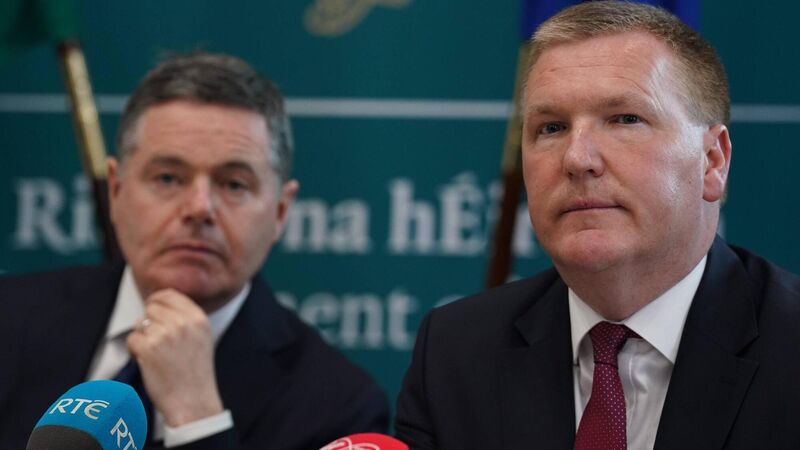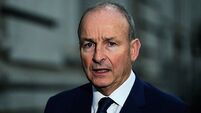High income tax receipts boosts Government revenue as corporation tax lags behind

Finance Minister Michael McGrath said the strength of income tax receipts, as well as Vat, shows that the economy is “holding up well despite a number of headwinds”.
Despite a fall-off in corporation tax, Exchequer’s returns show that in the year to the end of April, tax receipts have increased by €600m compared to last year largely driven by higher income tax receipts.
Overall, €4.7bn in tax receipts have been collected in April bringing the total so far this year to €24.8bn.
During April, €3.2bn in income tax was taken in by the Exchequer bringing the total for the year so far to €11.2bn — €700m ahead of the same period last year.
Finance Minister Michael McGrath said the strength of income tax receipts, as well as Vat, shows that the economy is “holding up well despite a number of headwinds”.
“The May returns, when further VAT and corporation tax receipts are expected, will provide a clearer indicator of the tax revenue performance. However, overall, tax revenues are ahead of the same period last year even despite the decrease in corporation tax seen last month."
Corporation tax has had a more modest start to the year for a number of reasons.
April is not considered a key month with only €300m taken in. There was also a decline reported in March which was attributed to a timing issue which would be offset later in the year.
Between January and the end of April, corporation tax receipts came to €2.7bn down €800m on the same period last year.
Vat receipts stood at €300m as it was not due during the month with €7.4bn raised in the year to the end of April while the cumulative for excise duty paid stood at €2bn.
Excise duty was up €100m to €500m in April reflecting the phase out of the duty reductions on diesel and petrol at the start of the month.
Non-tax revenues and capital resources so far in 2024 stood at €1.3 billion, flat compared to last year.
However, while the total tax take for the year so far has been increasing, so has gross expenditure which now stands at €32.9bn — an increase of €3.2bn. Of this, non-voted expenditure accounted for €2.8 billion which is down €4.6 billion on the same period in 2023, reflecting the transfer to the National Reserve Fund in February 2023.
A deficit of €1.2bn was recorded in the first four months of the year compared to a deficit of €3.7bn at the same time last year.
The Exchequer results come as shareholders in AIB approved spending almost €1bn to buy back shares from the Government further reducing the State’s stake in the bank.
The transaction will see the Government’s share in AIB fall to under a third at 32.6%, down from 71% at the beginning of 2022.
The approval of the buyback was welcomed by Mr McGrath who said that when the buyback is combined with the latest annual dividend of €273m to be received next week, the total amount returned to the State from its investment in AIB will reach around €14.9bn.
Following the financial crisis, the State invested about €21bn in AIB to rescue it.
The proceeds from this transaction will be held in the Irish Strategic Investment Fund while Mr McGrath examines "how best to use them for the benefit of the State."













